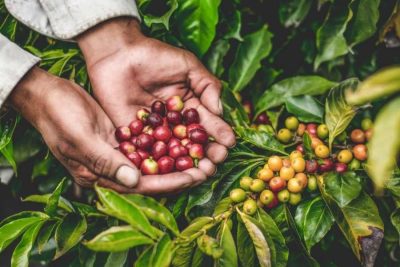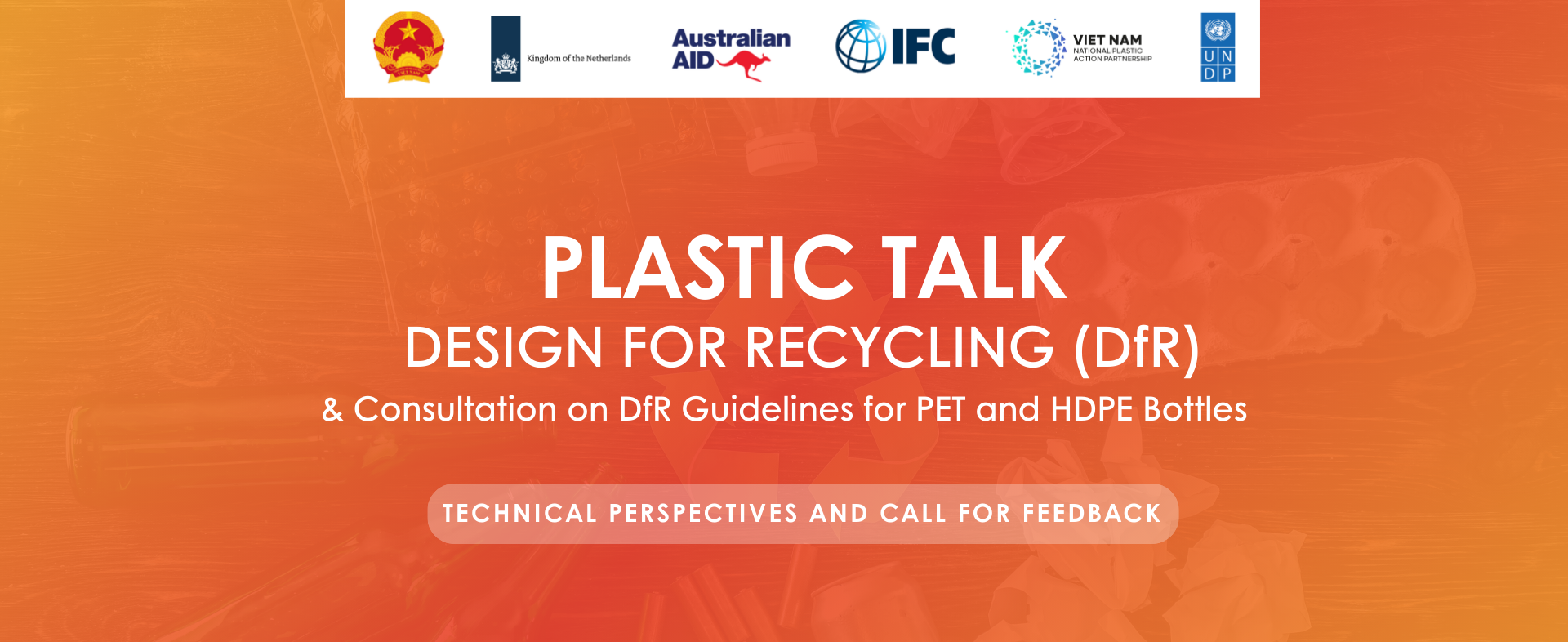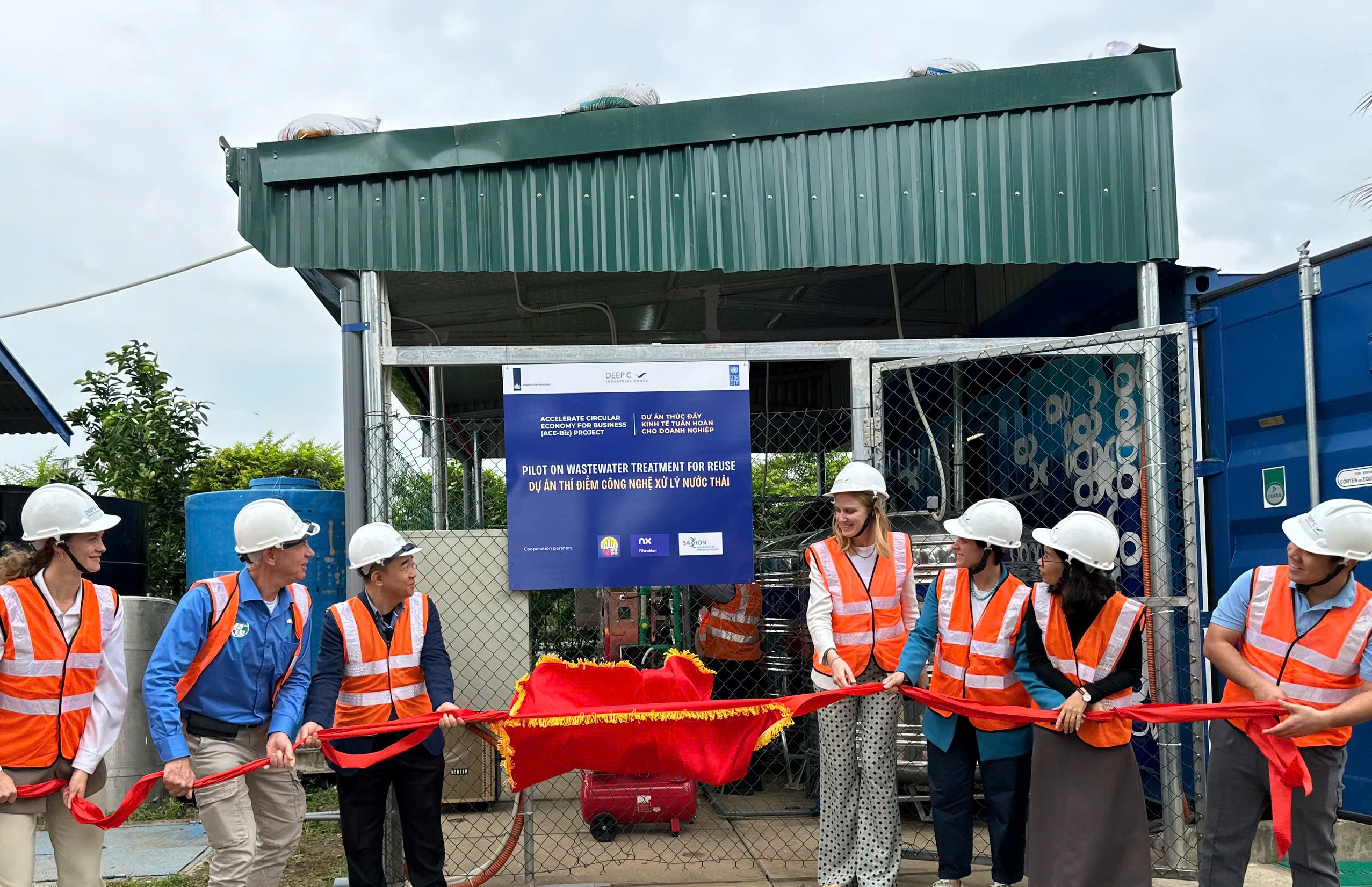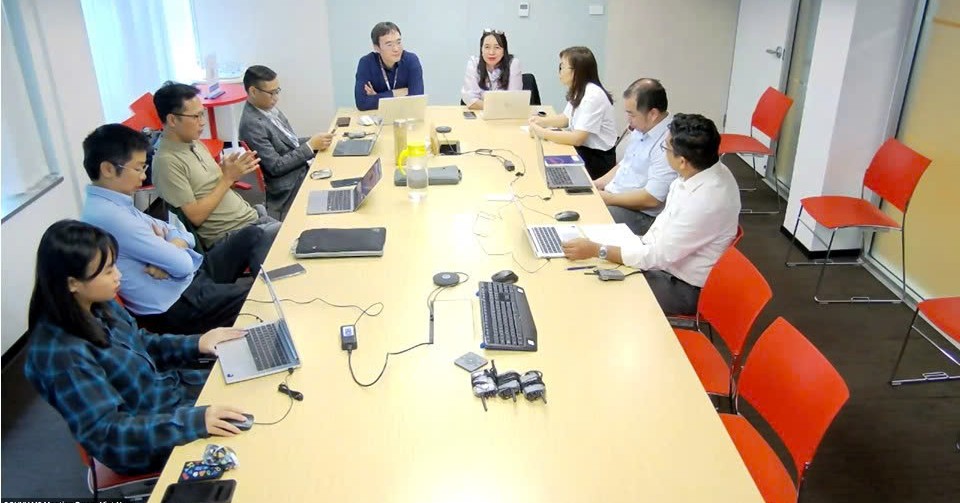Don’t miss UNDP’s Video showcasing example of circular agriculture, “International and Sectorial Collaboration to Promote a Circular Shift in Viet Nam’s Agriculture”. Watch it here and learn more about the transformative power of circular practices!
The proceedings of the event are now available for you to explore here .
Hanoi, 8 July 2024 – Deputy Minister Phung Duc Tien of the Ministry of Agriculture and Rural Development and Madam Ramla Khalidi, Resident Representative of the United Nations Development Program (UNDP) in Viet Nam, co-chaired the Policy Dialogue on “Enhancing International Cooperation and Multi-sectoral Coordination on Circular Economy in Agriculture”.

The Dialogue was participated by over 100 delegates from 70 domestic and international organizations, over 20 provinces and national cities, along with hundreds of online participants.
The conference aims to raise awareness among stakeholders about the role of the circular economy in achieving development goals in the agriculture sector; and communicate the key messages of the “Development and application of science and technology transfer to accelerate circular economy in agriculture up to 2030” recently promoted.
The Dialogue further aims to share best practices in the circular economy; orient key agricultural towards sectors circular economic development and corresponding markets; identify the challenges and opportunities to make recommendations on appropriate mechanisms and policies for the development of the circular economy. In particular, in the context of the development and integration, no single sector can grow independently without interaction and coordination with other sectors.
Deputy Minister Phung Duc Tien affirmed that “Developing a circular economy in agriculture is not only a requirement and an inevitable trend, but also a solution for a sustainable and effective agricultural development to fulfill international commitments and implement national and sectoral tasks on green and sustainable development .” Mister Deputy Minister emphasizes the crucial and practical role of circular agriculture in ensuring economic, social, and environmental benefits when applying circular agricultural models. More than ever, climate change, scarcity of natural resources, environmental degradation, diseases, and other factors are compelling countries to rethink their approaches to development and production, guided by the fundamental principle that “everything serves as input for something else”.

Based on the principles of strengthening multilateral international cooperation and multi-sectoral coordination, Mister Deputy Minister called upon the international community, ministries, and agencies from central to local levels and the private sector to collaborate in supporting the agricultural sector to achieve the 10 goals and 6 tasks outlined in the proposal on the “Development and application of science and technology transfer to accelerate circular economy in agriculture up to 2030.” This project was approved by Decision No. 540/QD-TTg on June 19, 2024, by the Prime Minister and is led by the Ministry of Agriculture and Rural Development. The project will emphasize research, technology application, market development, policy frameworks, international cooperation, and communication related to circular agriculture.
Co-chairing the event, Madam Ramla Khalidi, Resident Representative of UNDP in Viet Nam, emphasized that “Accelerated resource recovery from agro-waste will contribute to reusing and producing materials, proteins, energy, and nutrients while improving food quality and strengthening the resilience of food systems and smallholders to rapidly increase climate impacts. We can all do our part to contribute to stimulating markets for circular products. From the supply side, we must build on the science, technologies, and successful pilots already taking place in Vietnam design farming systems that efficiently use natural resources at the farm level and along the whole supply chain, including all actors in processing, transport, retailers, therefore promoting responsible sourcing from farm to fork.”

At the dialogue, representatives from international organizations, including EU, Australia, Canada, IRRI, and FAO, the private sector, non-governmental organizations, and ministries and agencies came together to share international cooperation mechanisms and inter-sectoral coordination to promote circular agriculture practices, introduce successful circular agriculture models, and appreciate the proactive efforts of the agriculture sector in practicing circular agriculture. In particular, the public-private partnership was emphasized as a key factor in the success of circular agriculture, specifically the proactive role of the private sector in applying science and technology and deploying innovative circular agriculture initiatives and models.


At the Dialogue, UNDP also presented initial results collected under the NDC-Circular Economy Toolbox which aims to support Viet Nam in identifying, prioritising, implementing, and tracking circular interventions in agriculture that contribute to the NDC 2025. UNDP announced its upcoming reseach in the coffee and rice value chains collaborate with the Institute for Policy Strategy on Agriculture Research and Development (IPSARD), ICD-MARD, and the Institute of Agricultural Economics (IEA) to frame new integrated measures for low carbon and circular agri-food value chains.
Video to capture UNDP’s initial steps to accelerate CE in agriculture
The participating parties agreed and committed to promoting international cooperation and multi-sectoral coordination in circular agriculture, pledging to share responsibility for implementing international commitments on climate change and the country’s Net-Zero goal. They also expressed their expectations that, after the conference, the parties will proactively convene to propose and implement specific activities in circular agricultural production throughout value chains.
With the active participation of 70 agencies and departments of the Vietnamese government, international and domestic development partners, provinces and cities participating online from other bridge points, in the spirit of cooperation, construction, and thorough preparation by the two co-organizing agencies, the Dialogue took place in an atmosphere of contribution, openness, and resounding success.
The background information and the agenda of the event can be accessed here .
The materials of the event can be accessed here .


















